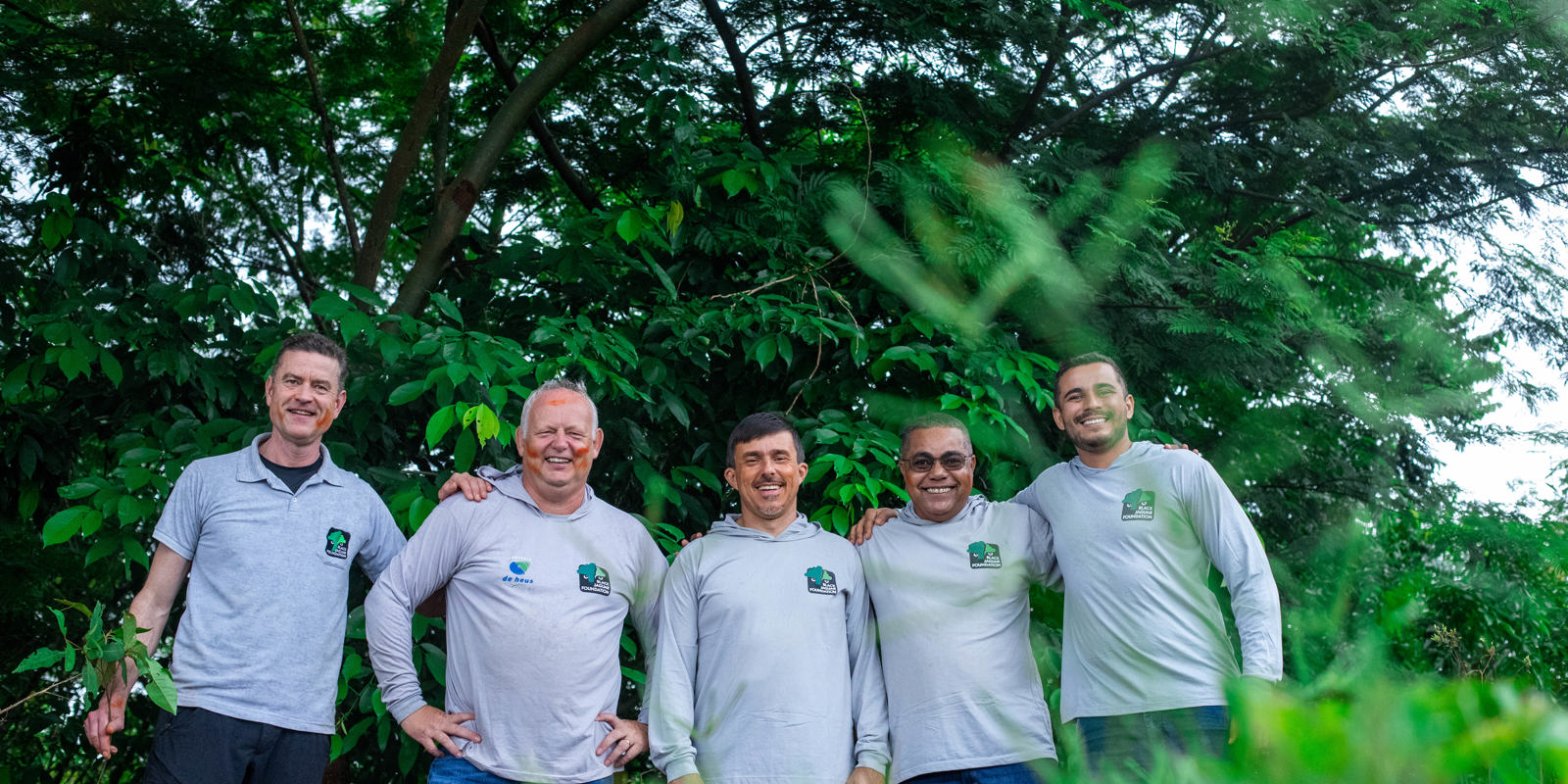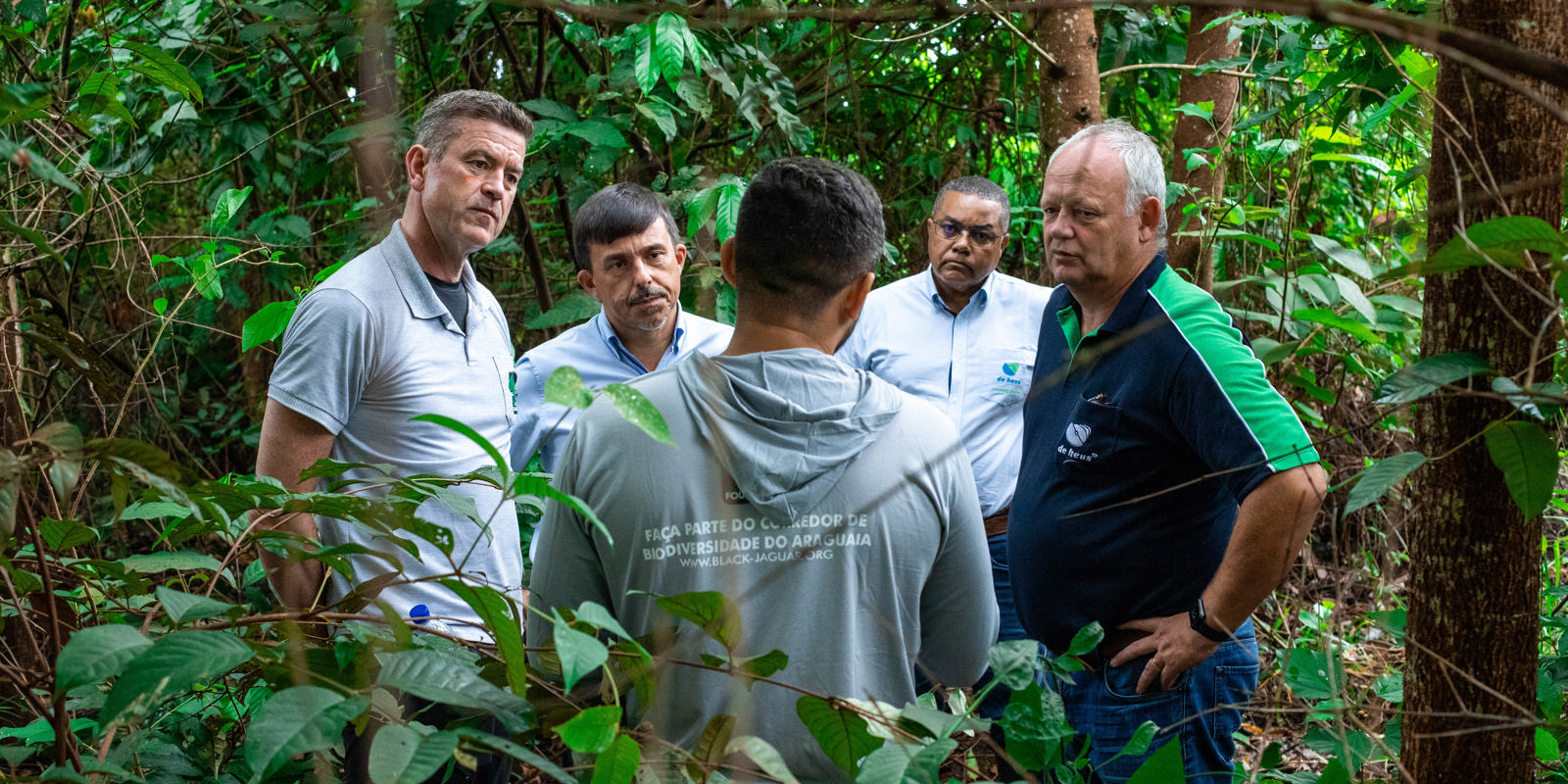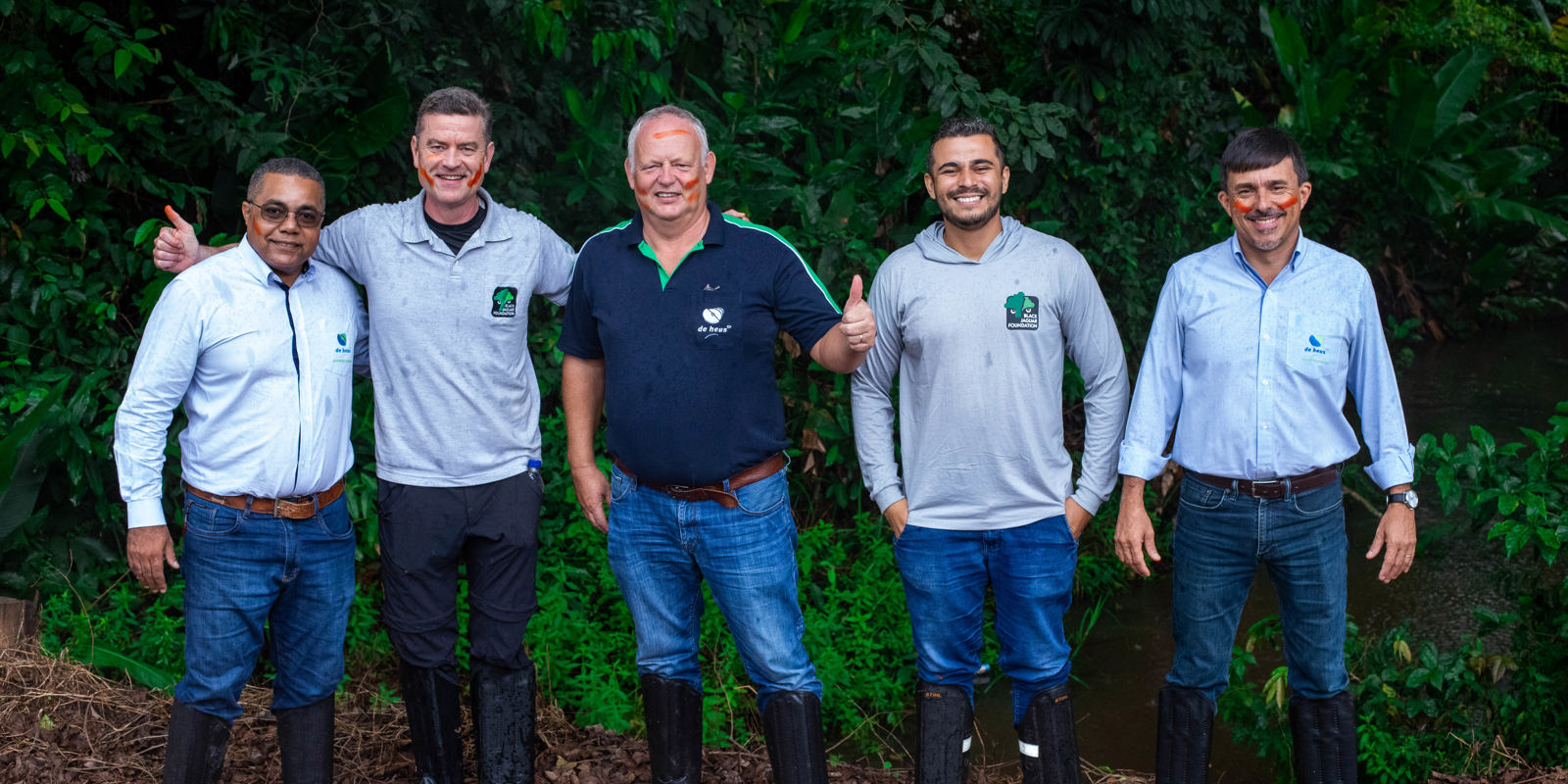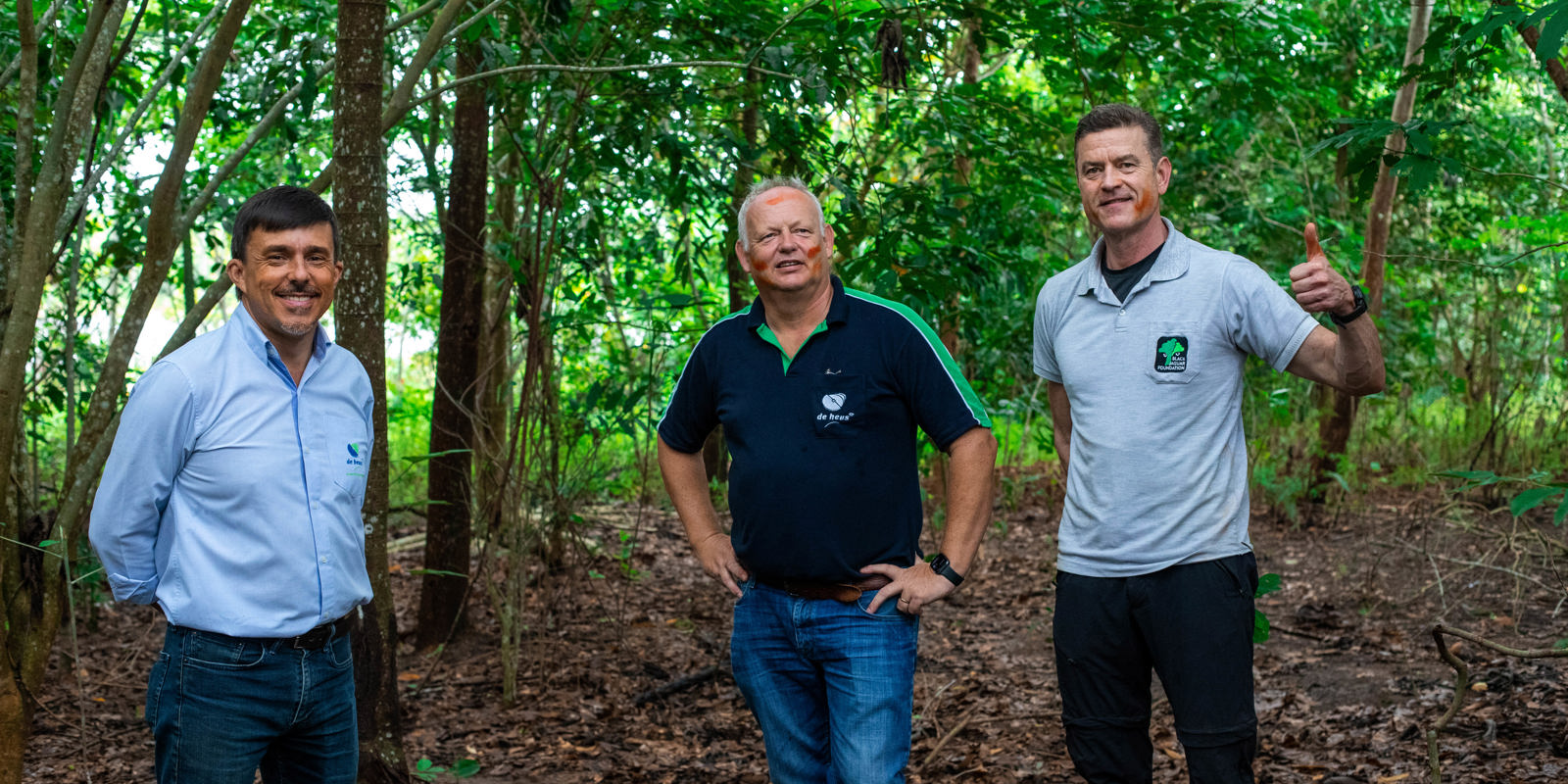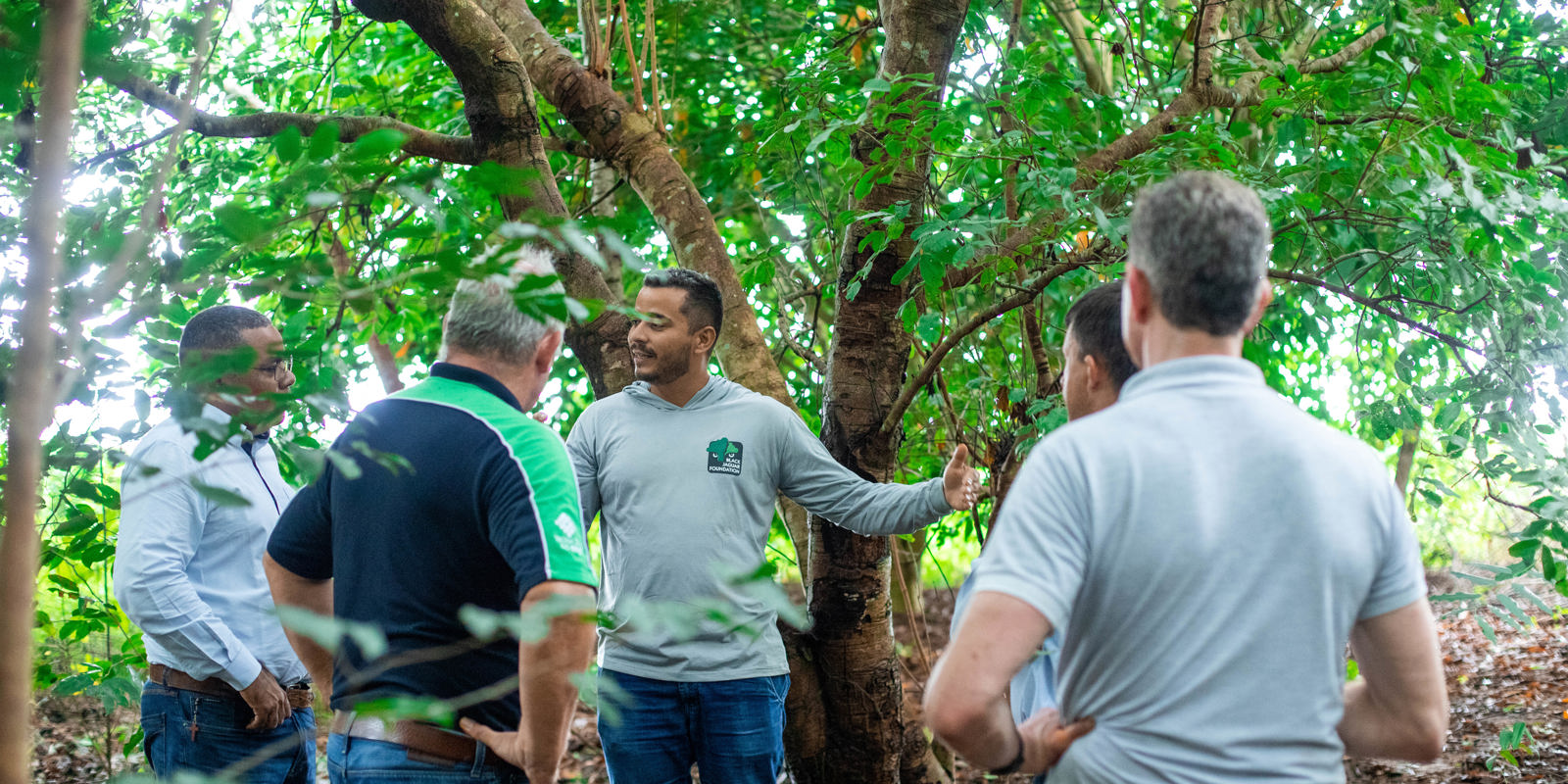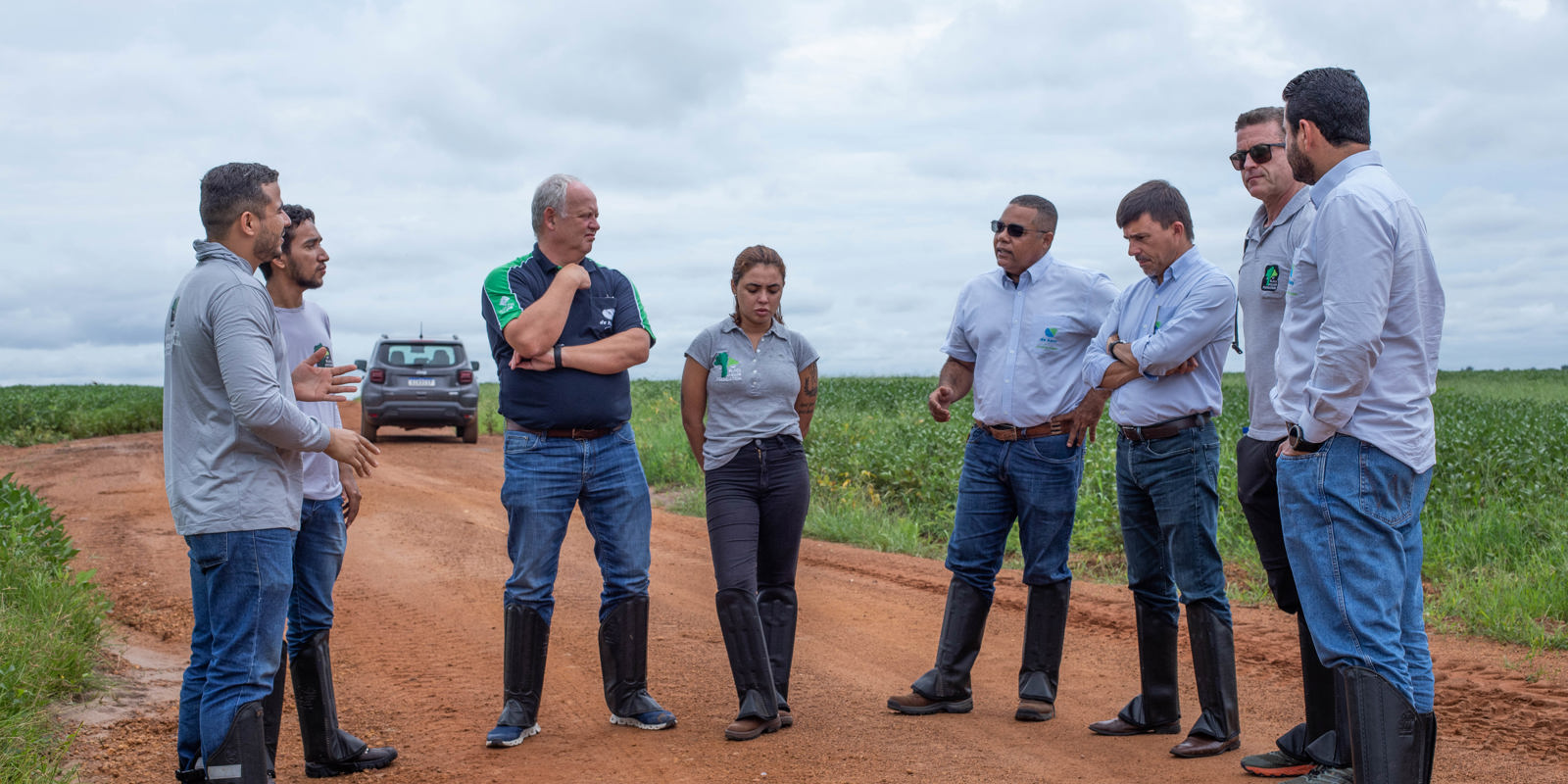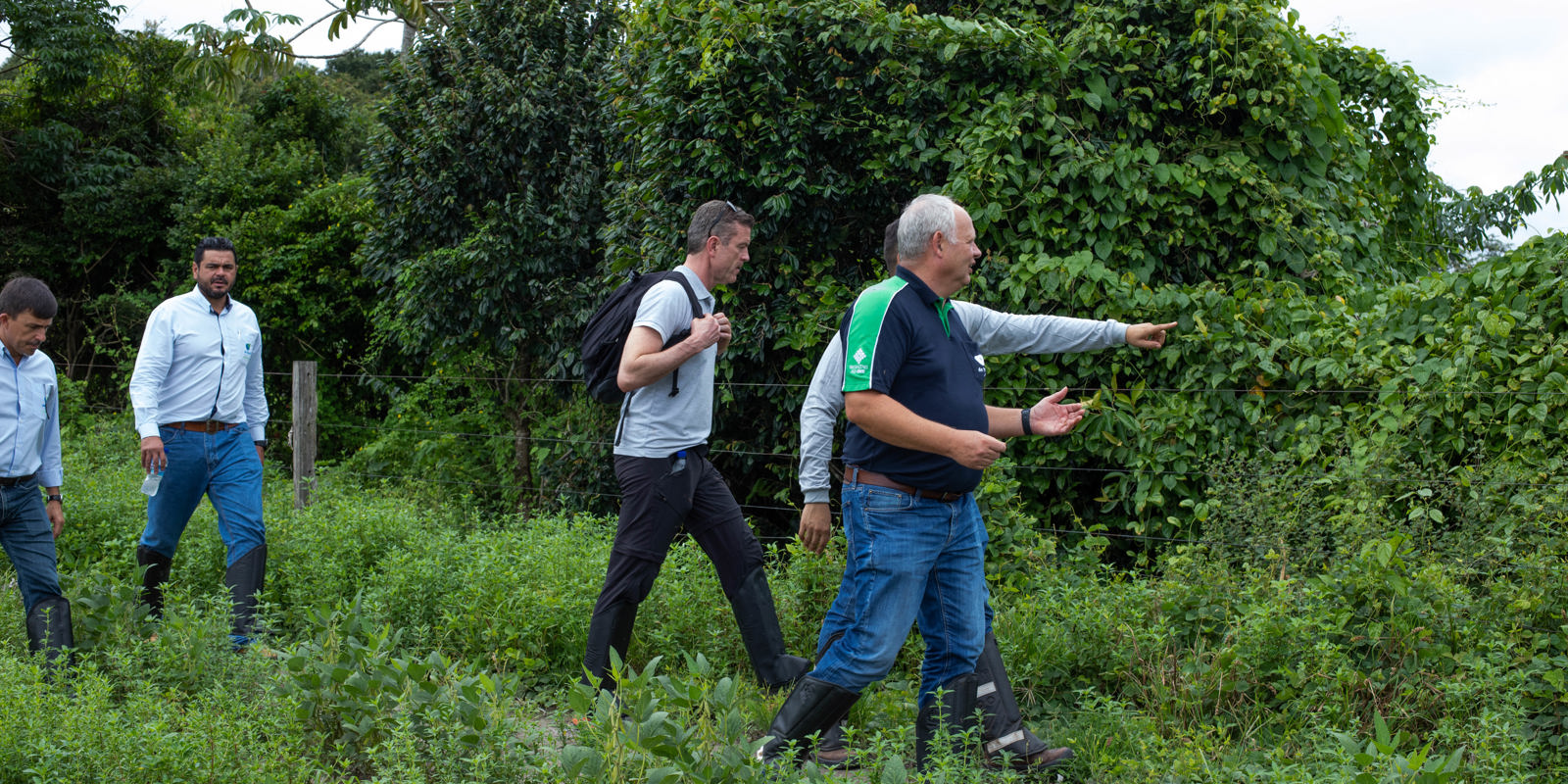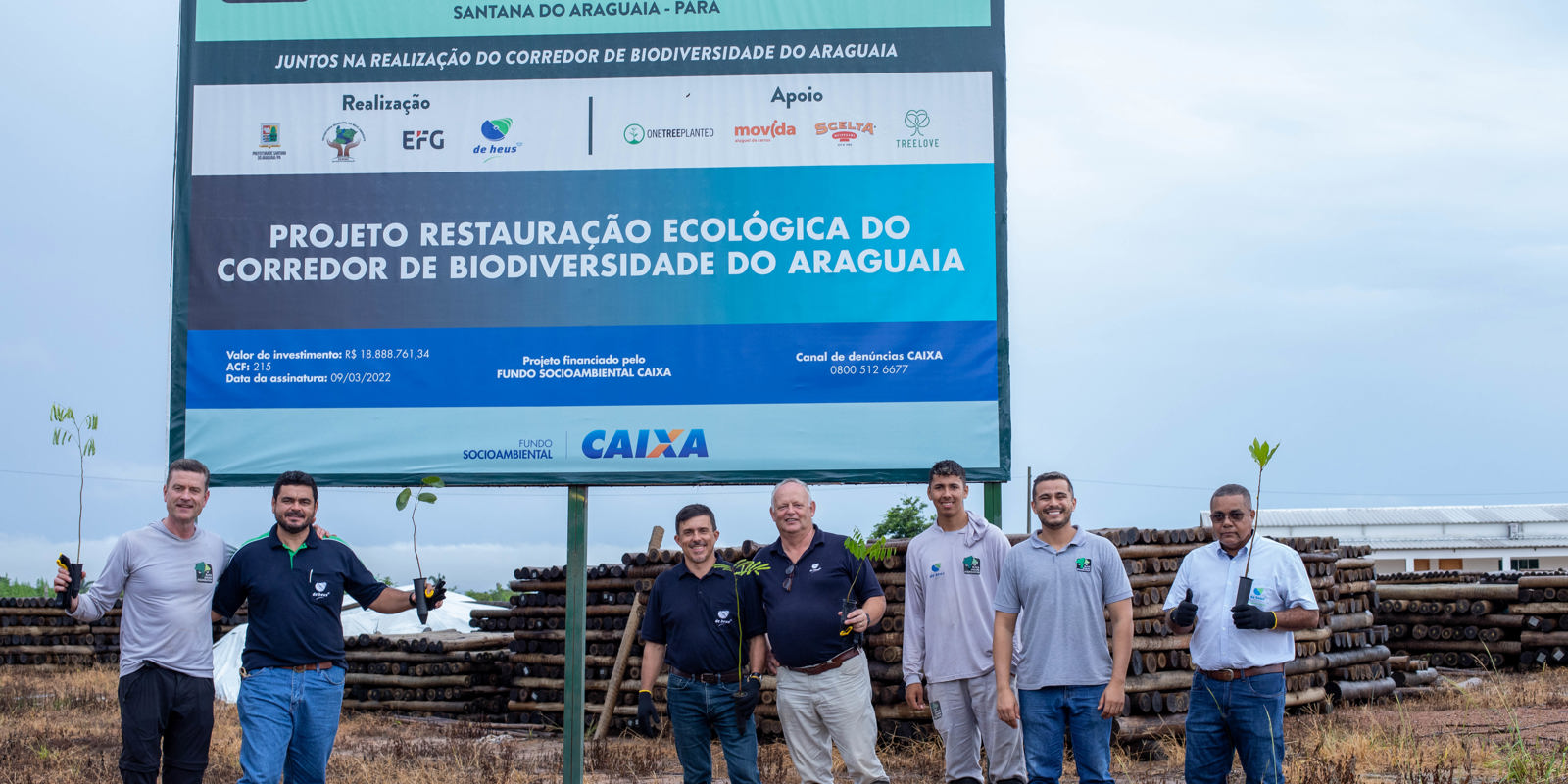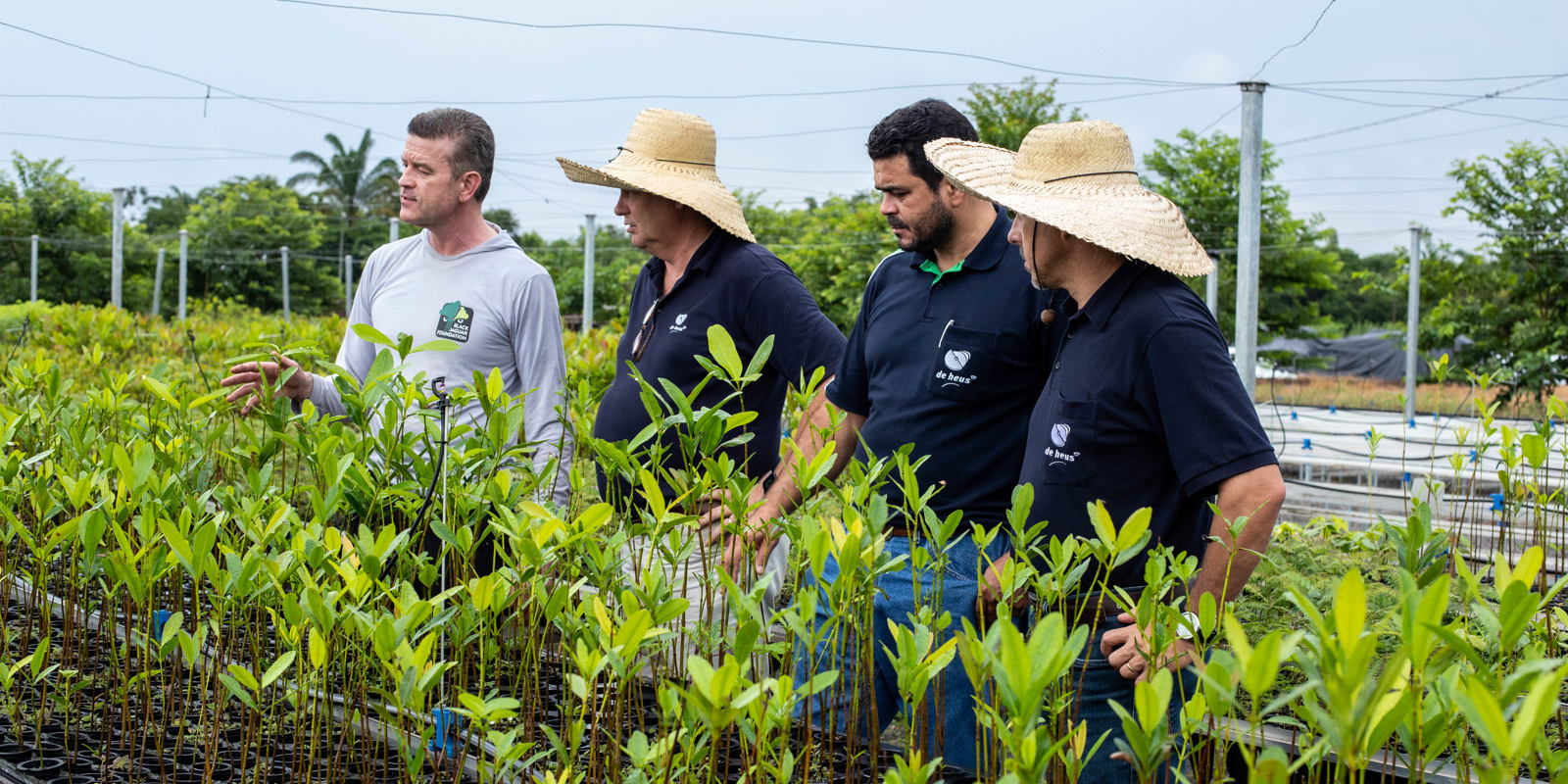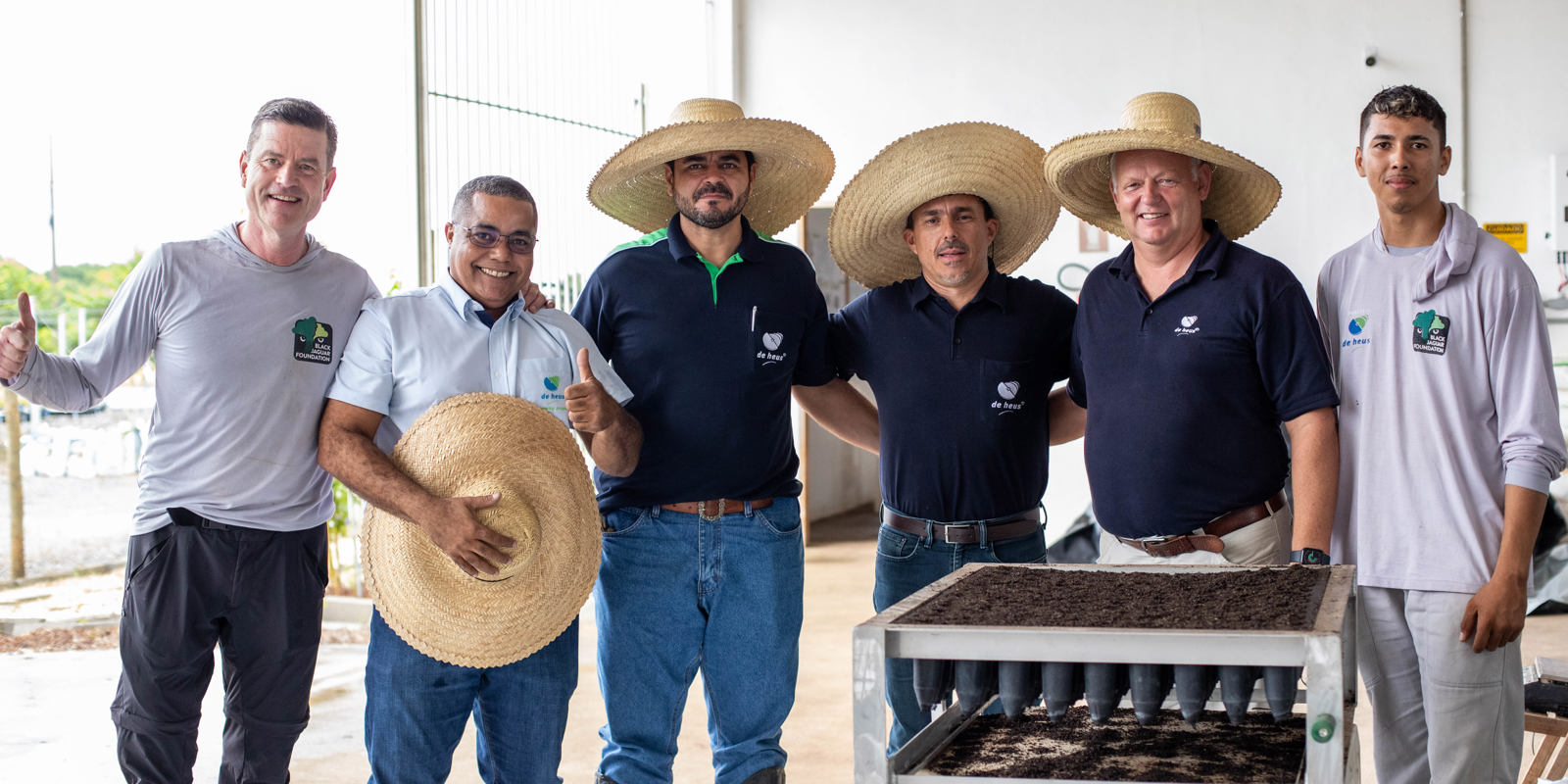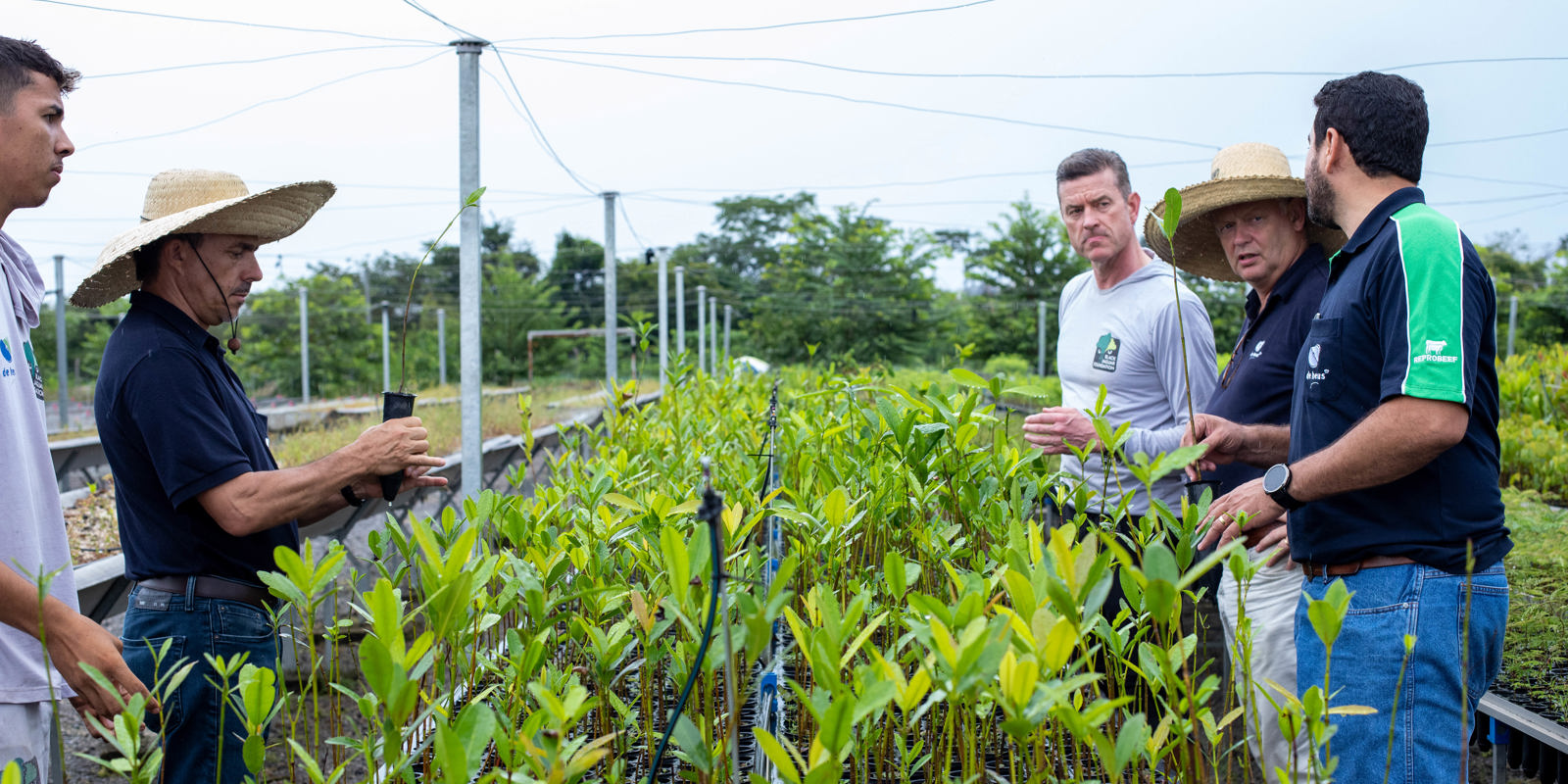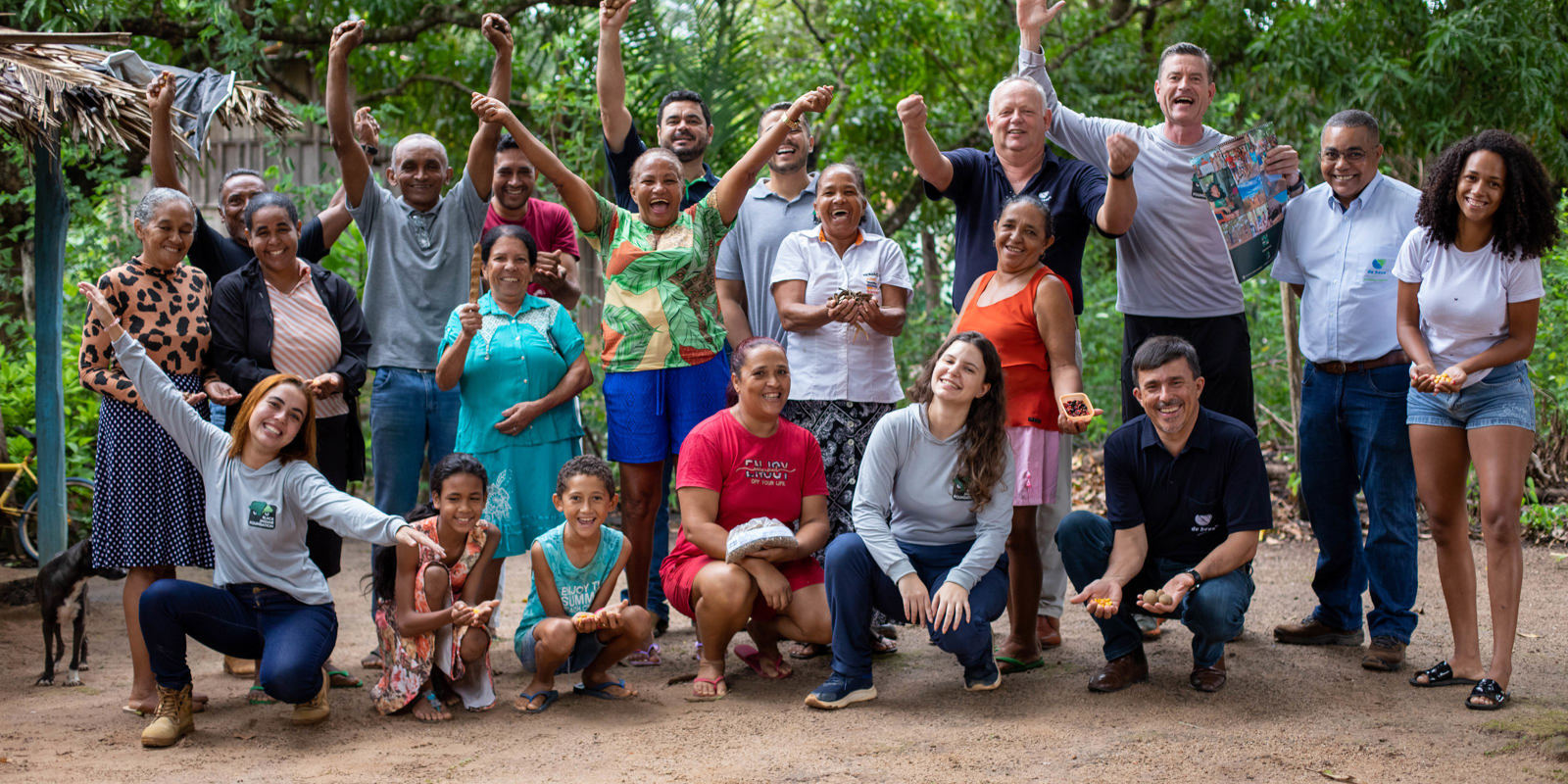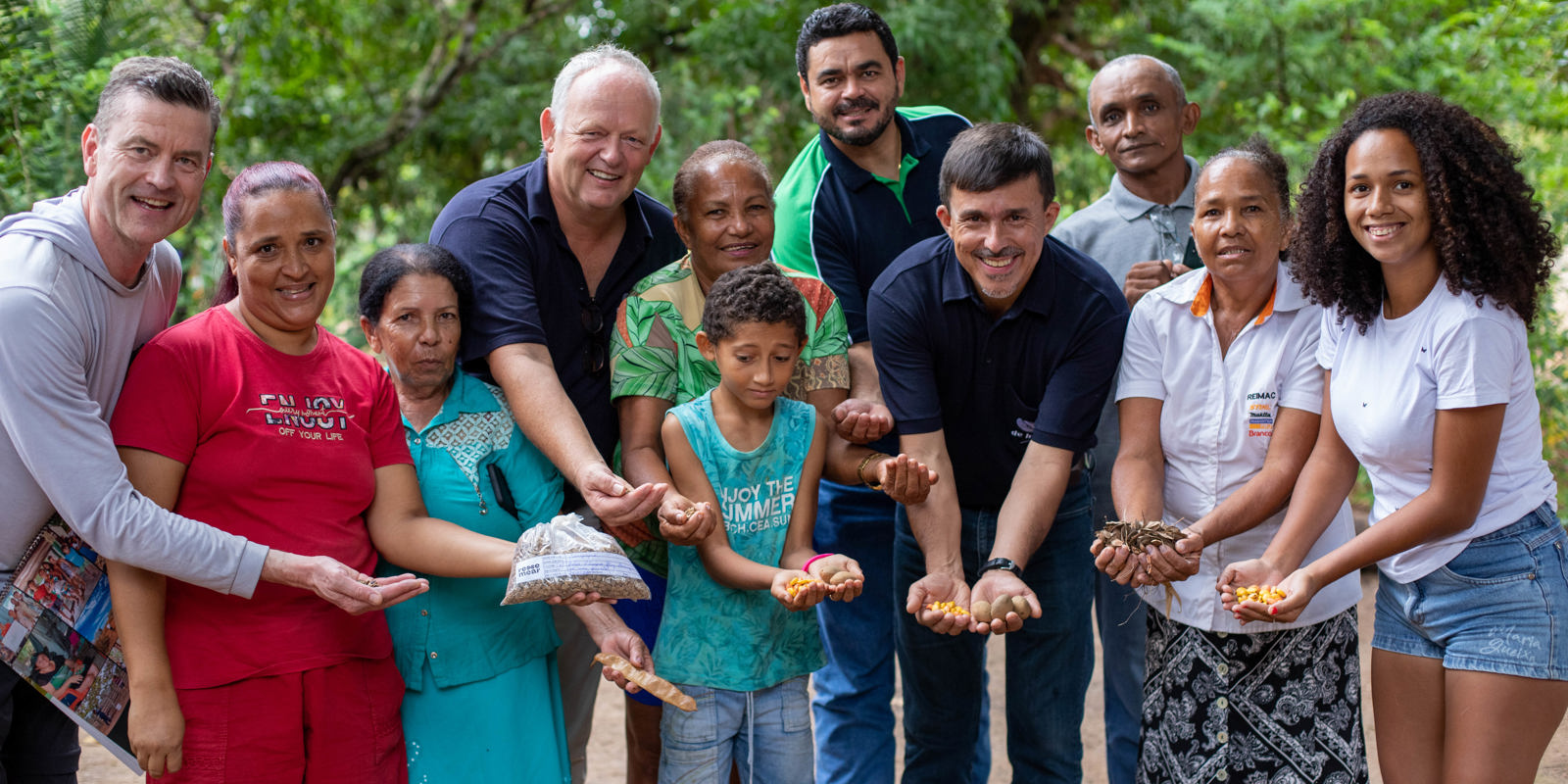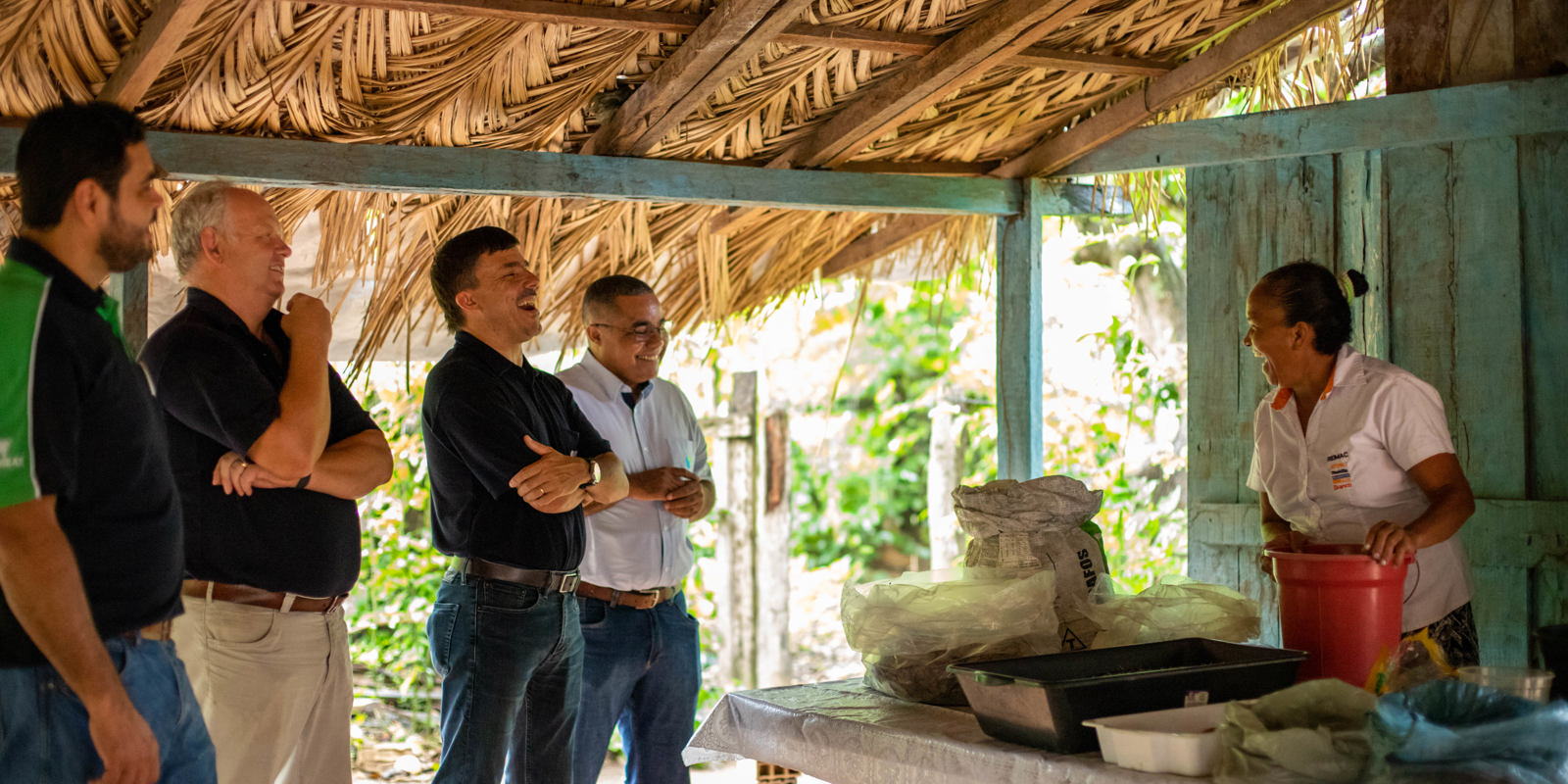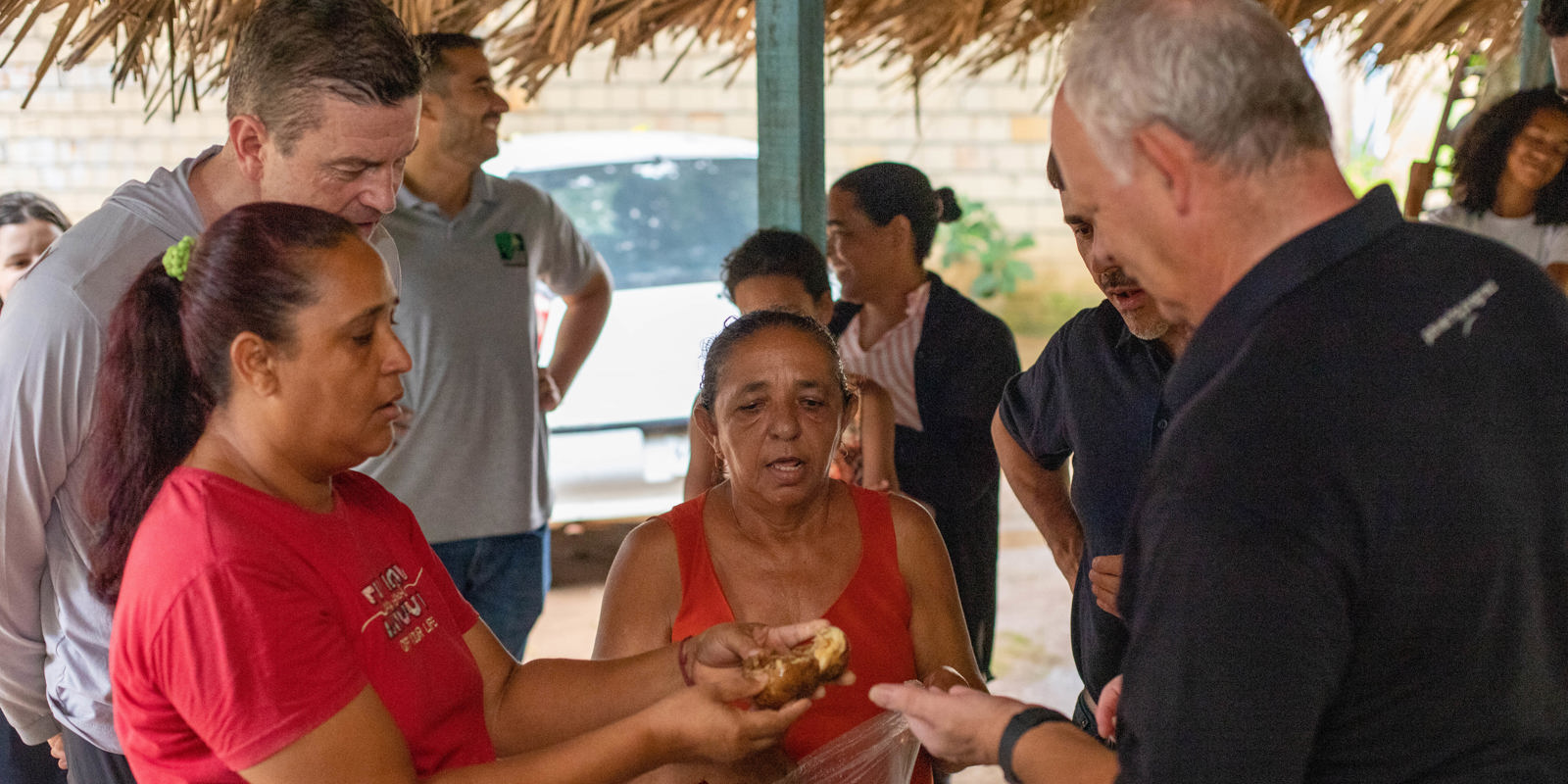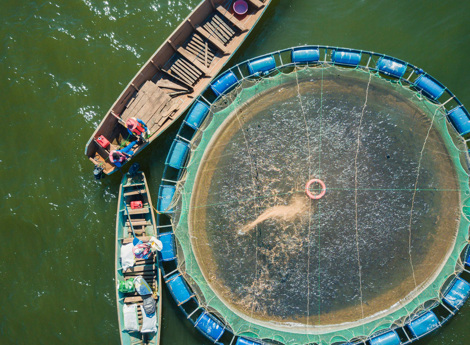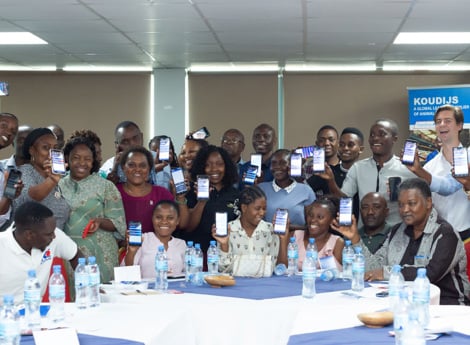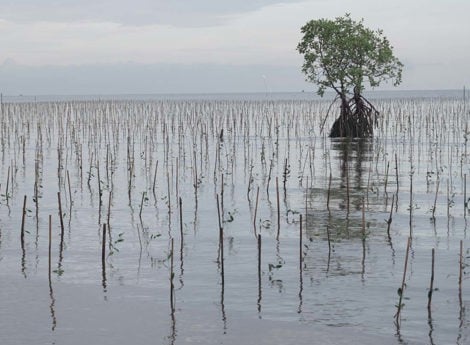De Heus visits Black Jaguar Foundation's environmental restoration areas in Pará
With significant socio-environmental impact, the project promotes preservation and restoration of degraded areas in the Araguaia Biodiversity Corridor for the benefit of the local community and beyond. The size of the corridor has the potential to have a positive effect on all of us everywhere and to truly make a difference.
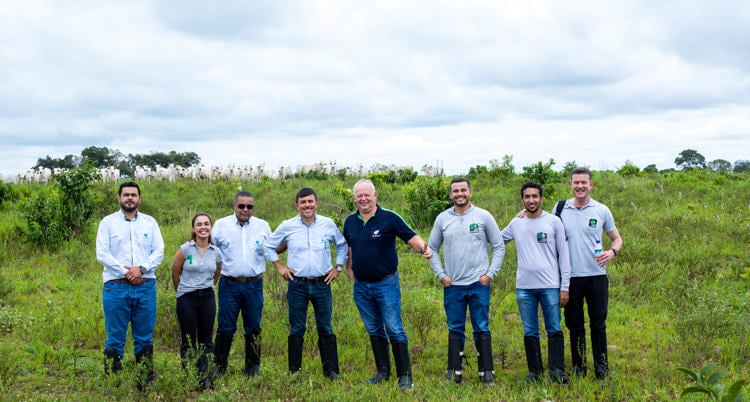
In February, representatives from De Heus visited the restoration areas of the Black Jaguar Foundation. The foundation advocates for the restoration of the Araguaia Biodiversity Corridor, connecting the Amazon and the Cerrado. For more than 5 years the team has been operating at the heart of the corridor, in Santana do Araguaia, Pará.
During the visit, Rinus Donkers, Director Latin America at De Heus Brasil, and Ademir Pereira, Business Manager - Ruminants at De Heus Brasil, had the opportunity to witness firsthand the impact of environmental restoration efforts and the recovery of degraded areas in the Araguaia Biodiversity Corridor. This biodiversity corridor stretches along the Araguaia and Tocantins rivers and is supported by De Heus. Rinus and Ademir also had the chance to meet local producers who receive technical assistance from the Black Jaguar Foundation regarding the Brazilian Forest Code.
In his first visit to the project, Rinus Donkers emphasized the importance of building trust between the Black Jaguar Foundation, local communities, landowners, and members of the Araguaia Seed Network. "During the gathering, organized by the Black Jaguar Foundation to introduce us to producers and regional government authorities, it became clear that it is possible to reconcile production with preservation and restoration. This pleasantly surprised us because what we are doing together is leaving a legacy for future generations, making it possible to achieve a more sustainable production model. It was gratifying to witness the progress made and the potential of this partnership between the Black Jaguar Foundation, De Heus, and the producers, which has proven beneficial for all involved!" he declared.
Donkers also highlighted that the Black Jaguar Foundation has achieved significant results on all the farms they were working with. "Even the most skeptical producers now support the organization and are open to showcasing the results to others. It is truly impressive to see with your own eyes how forested Permanent Preservation Areas (APPs), planted about a year and a half to four years ago, have transformed into real forests with a biodiversity of at least thirty to seventy different species,” he commented.
For Ademir Pereira it was encouraging to see how many farms in the region are already compliant with the Forest Code and, therefore, directly cooperate through their preserved areas. “With proper guidance and commitment, sustainability can be integrated into livestock farming and agricultural production, ensuring not only environmental preservation but also Brazil’s leading position in global food production, meeting current needs and those of the future. Significant change across the entire supply chain is necessary now. For this, it is crucial to involve more companies and political authorities in this process because only through collaboration and mutual support can we demonstrate to the world that Brazil can produce food sustainably," he emphasized.
Ben Valks, founder of the Black Jaguar Foundation, celebrated the positive impact of the visit, emphasizing the relevance of the partnership with De Heus. "During the visit to the restoration areas and the project's large-scale nursery, we showed trees planted that have already reached up to seven meters in height, thanks to De Heus' support. We also made sure that Rinus and Ademir planted their own trees. As we always say, this is a win-win-win partnership. Nature wins, local communities win, and the entire agricultural sector wins. De Heus is not just a sponsor of our project but a longstanding partner. Our values are truly shared," said Valks.
In this regard, Pereira explains that De Heus has a global sustainability programme called Responsible Feeding, which includes programmes like "Natural Power," aligning with the restoration and preservation work done in the region. It helps producers boost animal health through the ideal balance of health, nutrition, and management, with respect for the environment. "Livestock farmers and producers are already becoming aware of this, but some lack sufficient knowledge and experience. Therefore, initiatives like the Black Jaguar Foundation in partnership with De Heus, by offering guidance and technical support, make a significant contribution. Joint efforts involving responsible government agencies, private initiatives, and entities supporting this cause will undoubtedly bring about positive holistic changes much faster. In this way, Brazil will be able to maintain its position as a major food producer for the world with a much more sustainable and effective production," he clarifies.
About the Black Jaguar Foundation project
The project developed by the Black Jaguar Foundation is highly professional and technological, involving a mix of knowledge from environmental engineers, agronomists, and various other professionals. According to Ademir Pereira there is an entire process of adapting seedlings to the locations where they will be planted, along with suitable technology to prepare the seeds to generate into viable seedlings. "Each type of seedling requires a specific technique because, depending on the species, requiring different harvesting times and seasons, as well as different preparation processes. It is necessary for the seedlings to reach the ideal size for transplantation. Additionally, the planted seedlings are monitored until they are three years old because, in the beginning, it is necessary to perform maintenance and care, such as preventing ants from cutting their leaves, and removing invasive grasses. Only after this extensive care period, the forest can then sustain itself autonomously," he explains.
Another point highlighted by Pareira is the legal support offered by the Black Jaguar Foundation, which includes a team of (environmental) lawyers conducting significant work guiding and supporting these farmers in regularizing their properties. “Farmers need regularization to sell their products. Behind the scenes, lawyers and Brazilian Forest Code experts from the Black Jaguar Foundation assist the farmers with legal compliance”, he points out.
Pereira also emphasizes Black Jaguar Foundation is realizing significant social impact that benefits the entire chain and region. An example of this is the riparian populations facing unemployment due to farm mechanization and upscaling. With the Araguaia project, seed collection in the region's forest has become a source of income for these people, enabling some to fund university courses for their family, with the income from selling seeds for the project's mission," he explains.
"In summary, for me, this trip once again showed the great potential of this region of Brazil. With all stakeholders doing the right thing, working together, this part of the world will be able to create a great win-win for nature preservation and food production. I can only promise to support any action in this direction as much as possible. Only all of us together can make this happen," concludes Rinus Donkers.
Discover more about the partnership between De Heus and the Black Jaguar Foundation, promoting sustainability and conservation together.
Learn more


